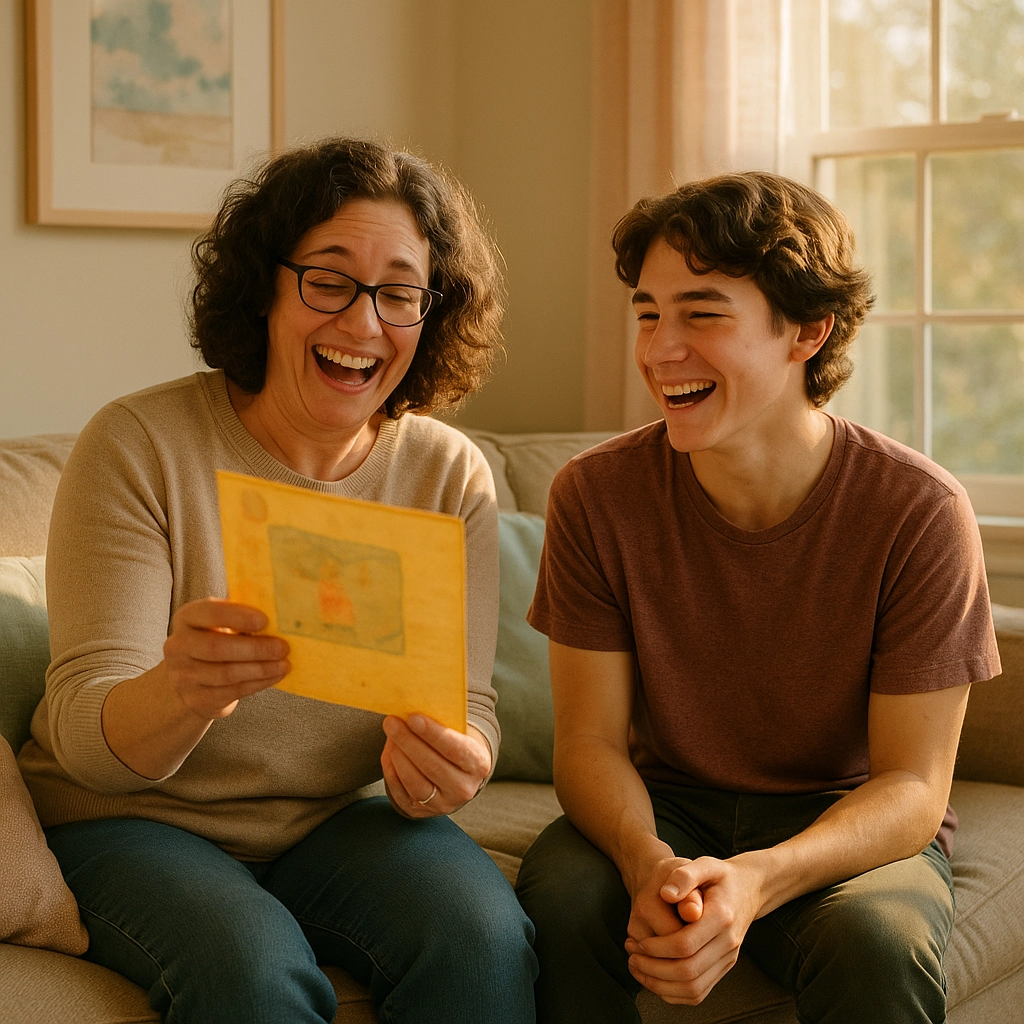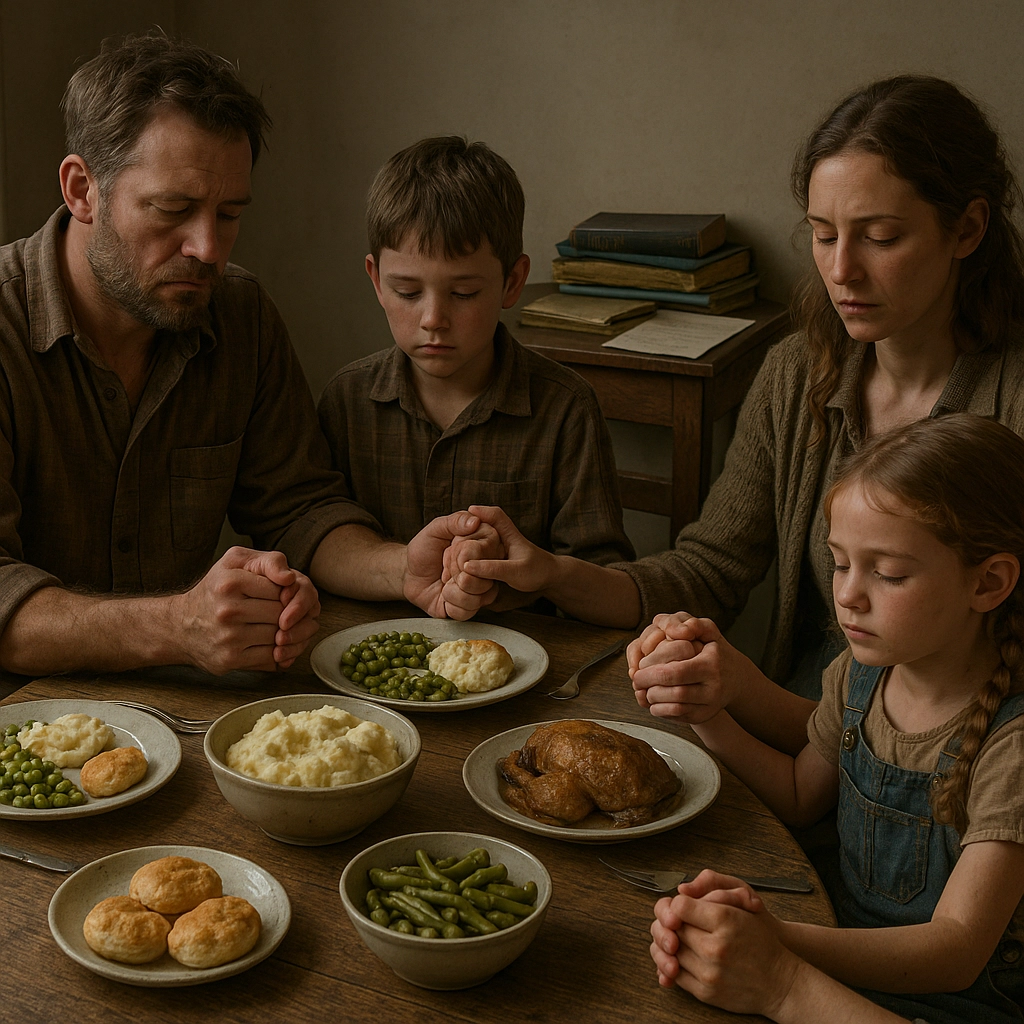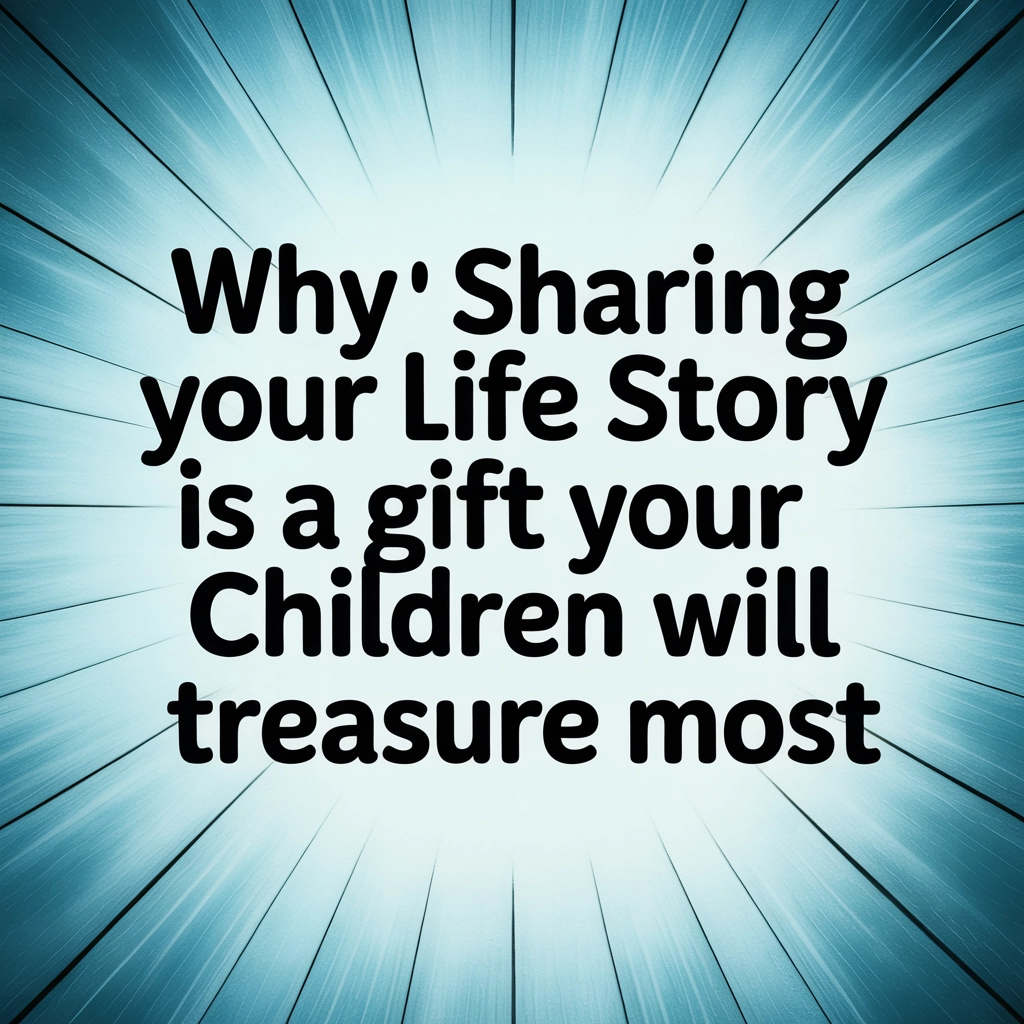Have you ever stumbled across an old photograph of your grandparents—maybe your grandma’s mischievous smile on a yellowed porch, or your grandpa giving a suspiciously self-assured salute beside a glimmering pickup truck? And for a split second, you wondered: what were they actually like? What did they love? Where did they struggle, and where did they lean on faith?
Now, zoom forward. One day, your children may look at a photo of you, archived deep in a digital folder called “Family Stuff,” and ask those same questions. The difference is, you have an opportunity right now—to make sure your stories aren’t just tucked away in the pixels and papers, but living, vibrant, and ready for them when they need it most.
The Real Treasure
You see, sharing your life story isn’t just about nostalgia, or finally justifying all those journals stacked beside your bed. It’s an act of love—one that ripples through your kids’ self-worth, faith, and sense of belonging. Forget the fancy gifts and the latest gadgets. (Sorry, AirPods.) When you share your honest story—yes, even the embarrassing parts, maybe especially those—that’s the gift your children will cherish for a lifetime.
1. Building Trust and Deep Connection
Let’s clear up a myth: your children don’t need you to be perfect; they need you to be real. When you peel back the curtain and talk about your life—the mistakes, the surprise blessings, that time you accidentally dyed your hair orange and still went to Sunday brunch—you’re inviting your children into a sacred circle of trust.
It’s like saying, “Hey, life isn’t always Instagram-ready, and that’s okay.” Our kids live in a world packed with polished snapshots. When you trade gloss for honesty, you give them permission to do the same. Vulnerability draws us together in ways that perfection never can.
And the wildest part? Research says sharing your stories makes your kids feel closer to you, and more comfortable opening up about their own struggles. You become more than just a parent—you’re suddenly flesh-and-blood, relatable, and surprisingly human.
2. Developing Resilience and Coping Skills
Let’s be honest, life can be tough. Maybe you lost your job once and lived on ramen for a year, or you muddled through grief after losing someone close. (Or, maybe you spent middle school nailing the delicate art of surviving lunchroom drama and tiny cartons of questionable milk.)
When you share not just the victories but the valleys—how you leaned on prayer when you felt lost, or found hope when the bank account held just $17.22—you’re handing your children the gift of resilience. You’re saying, “Look, storms come, but God’s love endures. And hey, you can survive heartbreak or failure, too.”
Studies show that kids who know family stories (especially the messy ones) actually develop more coping skills and bounce back better when life isn’t fair. They learn that challenges aren’t roadblocks, just a bend in the road. (Bonus: this is usually about the point where they realize you were once their age, and somehow survived without WiFi.)
3. Preserving Legacy and Identity
Let’s get a little philosophical. Who are you? And what thread do you want to weave into your family’s tapestry? Sharing your stories—both the faith-filled moments and even those “what was I thinking?” episodes—turns genealogy into living legacy.
Stories about how you found hope in unlikely places, or how you trusted God when logic said to run the other way, remind your children that their lineage isn’t made up solely of census data and surnames. It’s composed of wild grace, courage, and probably a few quirky traditions (I’m looking at you, “canned cranberry sauce at Thanksgiving,” folks).
When children know your story, they begin to see how their story fits. They realize they’re part of something bigger, anchored by spiritual truths and family wisdom. It’s a sense of belonging that no ancestry website can replicate—and one that gives them a compass when the world is spinning fast.
4. Teaching Through Empathy and Faith
Whenever you share a real memory—like the fear you felt before a big life change, or the comfort you found in a prayer whispered late at night—you’re passing down more than advice. You’re giving your children a roadmap for empathy and spiritual growth.
Children absorb not just your words, but the heart behind them. Tell them about the time you doubted, the time you praised, the time you sat on the porch swing praying for direction. Show them that faith isn’t about having all the answers, but about choosing to trust God, even in the fog.
Faith-based family stories become anchors. They help kids understand that even when plans change and life feels chaotic, God’s love is steadfast. And when you show them how you navigated uncertainty and leaned on faith, they’re more likely to turn to those same values when life throws curveballs.
5. Creating Lasting Memories and Values
Let’s not forget the magic in the little moments: the bedtime story that turns into an epic saga, the road trip where the car broke down but you ended up laughing until your sides hurt, the holiday “disaster” that’s now the family’s favorite legend.
Those memories shape what your kids believe about themselves, their family, and their faith. They’re learning that every ordinary moment contains the seeds of the extraordinary—if you’re willing to see it. The values you live out loud in your stories (kindness, forgiveness, second chances, a dash of silliness) become the compass points your children follow for the rest of their lives.
And let’s face it: someday, your wild tales about youthful detours and hard-won wisdom will mean more to your kids than a thousand screen-addled scrolls or boxed-up trophies.
A Faithful Legacy for the Future
I get it. Sharing your story can feel daunting, especially if you’re still wrestling with parts of it. But your story isn’t meant to be perfect; it’s meant to be told. It’s meant to bless your children and remind them that God works through every twist, turn, and even the odd detour.
Whether you write your story down, record voice notes, or just take time to talk at the dinner table, what matters most is that you begin. This isn’t about creating a polished biography—it’s about capturing the heartbeat of your life and passing on wisdom, faith, and (let’s be honest) a few embarrassing tales your family will laugh about for years.
If you’re ready to turn those everyday moments, faith milestones, and family legends into a lasting gift, you don’t have to do it alone. At Call to Story, we believe everyone’s story deserves to be heard, cherished, and celebrated—especially yours.
So don’t wait. Your story is the legacy your children will treasure most. And someday, they might just become the storytellers themselves, passing the torch from one generation to the next.

